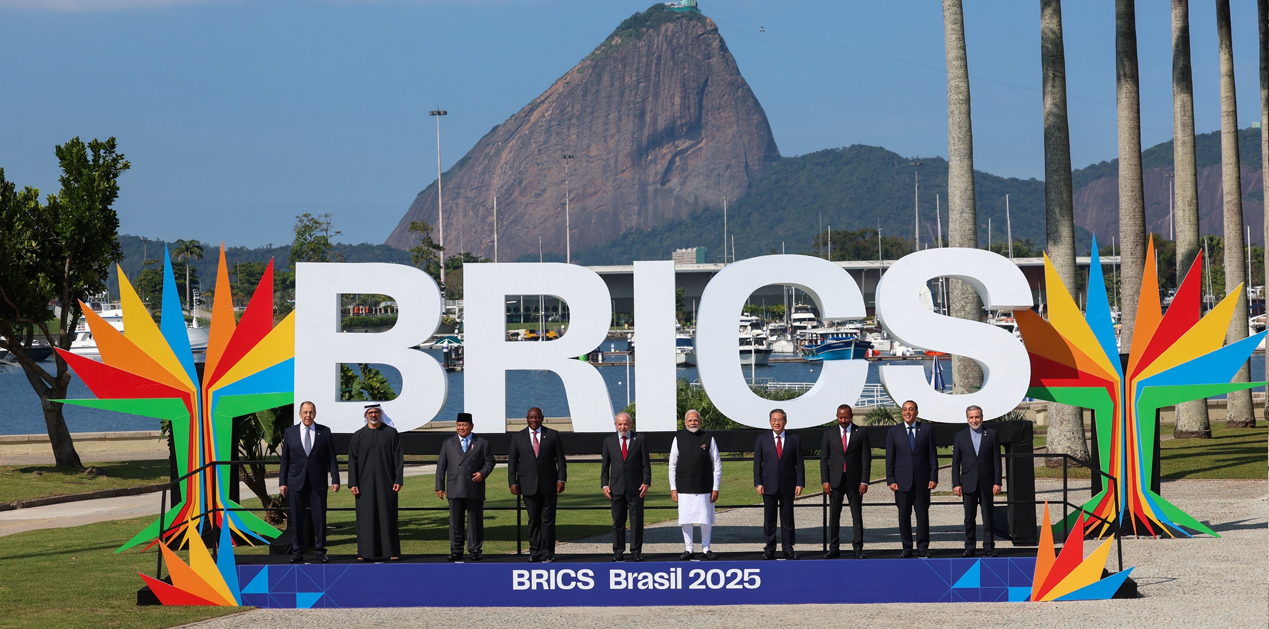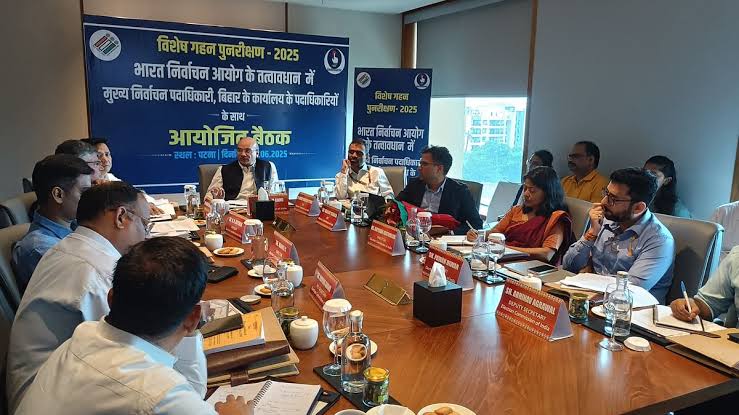Indian Diplomacy and Rio BRICS Summit

Prime Minister Narendra Modi concluded the BRICS summit in Rio de Janeiro with palpable satisfaction, marking a significant diplomatic win for India. This success comes on the heels of recent challenges, including a contentious joint statement with the Shanghai Cooperation Organisation and mounting domestic pressure regarding India's international engagement.
A key highlight for India was the BRICS declaration's strong condemnation of the gruesome Pahalgam attacks. The declaration unequivocally stated that the BRICS "condemned in the strongest terms the terrorist attack in Jammu and Kashmir on April 22, 2025, during which 26 people were killed and many more injured." This robust condemnation was particularly welcome after the perceived diplomatic setback with the SCO.
A Resolution Against Terrorism
Reaffirming their commitment to combating terrorism in all its forms, including cross-border movement of terrorists, terrorism financing, and safe havens, the summit reiterated that “terrorism should not be associated with any religion, nationality, civilisation or ethnic group, and that all those involved in terrorist activities and their support must be held accountable and brought to justice in accordance with relevant national and international law”. It added, “we urge to ensure zero tolerance for terrorism and reject double standards in countering terrorism." Though Pakistan was not named, the message was clear and strong.
In his address, PM Modi underscored that there was no room for double standards on terrorism, stating, "We cannot weigh the victims of terrorism and its supporters on the same scale." He further emphasized, "Condemning terrorism must be a principle, not a convenience." This assertive stance resonated widely, with sections of the media speculating whether he was alluding to the US for its engagement with Pakistan or China for its support to Pakistan and blocking India's efforts at the UN.
India’s Strategic Autonomy
Beyond terrorism, PM Modi significantly bolstered India's strategic autonomy and its role as a champion of the Global South. The summit's theme, 'Strengthening Global South Cooperation for Inclusive and Sustainable Governance,' provided a perfect platform for India to assert its position amidst evolving global dynamics, rising unilateralism, and economic fragmentation.
The summit's timing, following the Quad foreign ministers' meeting, underscored India's adept balancing act in engaging with diverse blocs, including those led by Russia and China, which seek to offer alternatives to West-led groupings like the G7. PM Modi's candid remarks, "The Global South has been handed nothing more than token gestures on climate finance, sustainable development and technology access," clearly pointed towards developed nations.
BRICS has indeed emerged as an influential grouping.
From its original five members in 2009, it has expanded to 10 full-fledged member states, with Egypt, Ethiopia, Iran, and the UAE joining last year, and Indonesia becoming the latest entrant. This expanded BRICS+ now represents approximately 49.5% of the global population, around 40% of the global GDP, and roughly 26% of global trade.
Six Strategic Priorities
Brazil, as the chair this year, focused on six strategic priorities, including global cooperation in healthcare, trade, investment, and finance; climate change; governance for artificial intelligence; peace-making and security; and institutional development. A core objective of BRICS, however, remains the commitment to and advocacy for the reform of Western-led global institutions, with Brazilian President Luiz Inacio Lula da Silva reiterating calls for a more representative UN Security Council.
The BRICS leaders also expressed "serious concerns about the rise of unilateral tariff and non-tariff measures, which distort trade and are inconsistent with WTO rules," without directly naming the US, despite previous threats from President Donald Trump regarding tariffs. The declaration highlighted the threat of "trade-restrictive actions" to global trade and supply chains.
Military Strikes In Iran
The bloc also took a clear stand in condemning the military strikes on Iran and the war in Gaza, though again without explicitly naming any countries. PM Modi's assertiveness about India's interests and those of the Global South was evident, as he stated, “Today, the world needs a new multipolar and inclusive world order,” and emphasized the urgency of reforming global institutions.
While a common BRICS currency or a cross-border system was not a central discussion, the group's economic and energy prowess is undeniable. BRICS nations are net exporters, with their total international trade standing at $10.5 trillion in CY2024. Notably, India's imports from BRICS nations increased from 35% to 43% between CY2020 and CY2024, indicating a growing reliance on the bloc for its import needs.
PM Modi's unequivocal stand as a voice for the Global South will undoubtedly draw more countries towards the grouping, seeking a more equitable and multipolar world. This is particularly significant as India prepares to take over as the BRICS chair for the coming year, with PM Modi stating that India's BRICS presidency will adopt a "humanity first" approach, redefining the organisation as "Building Resilience and Innovation for Cooperation and Sustainability."

 7 hours ago
7 hours ago





[[comment.comment_text]]